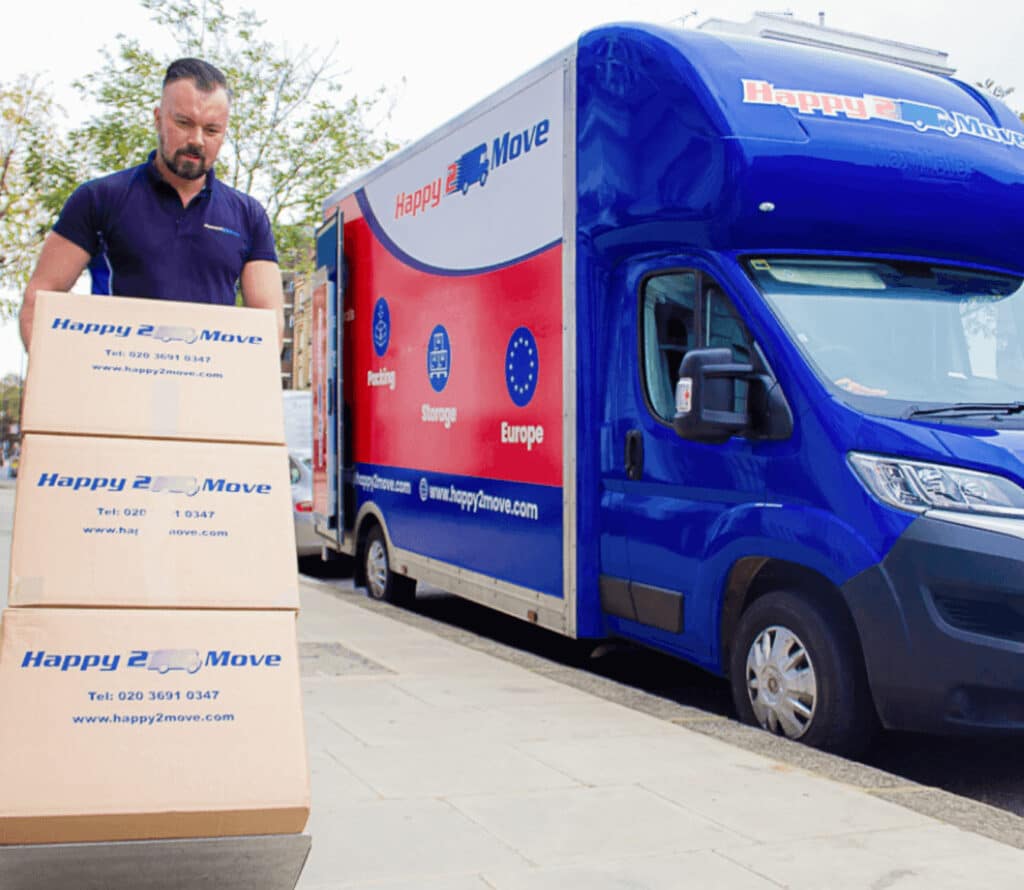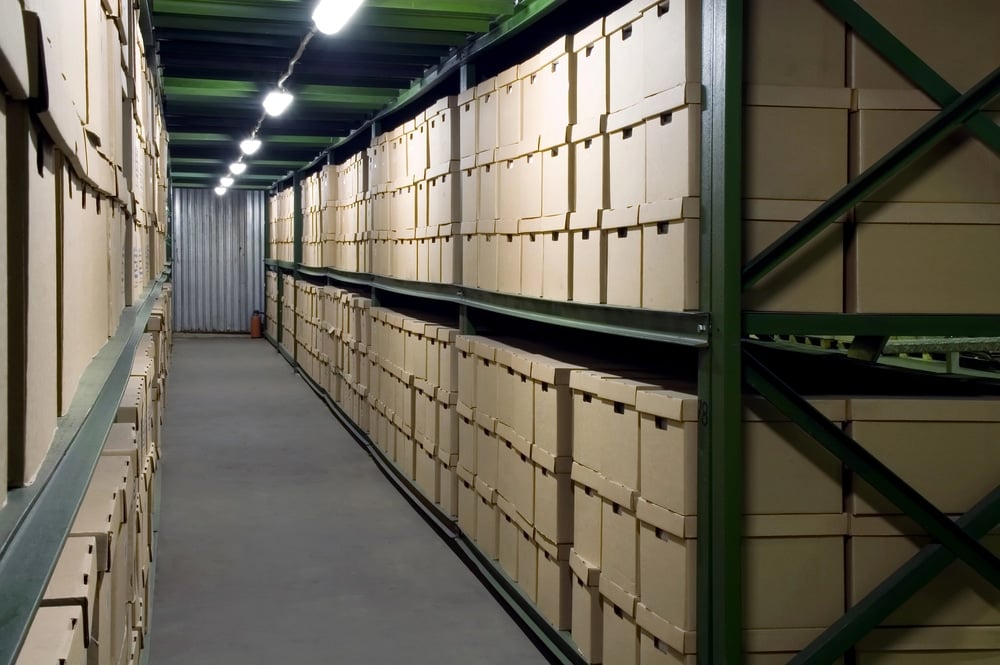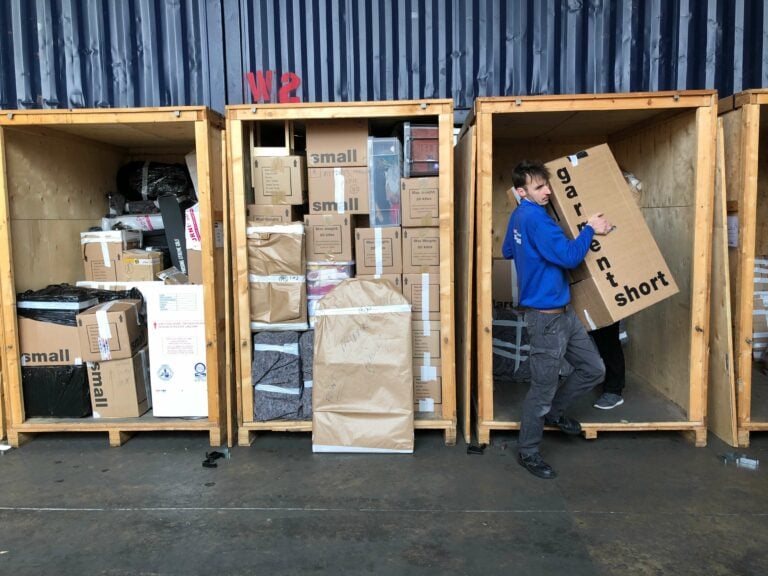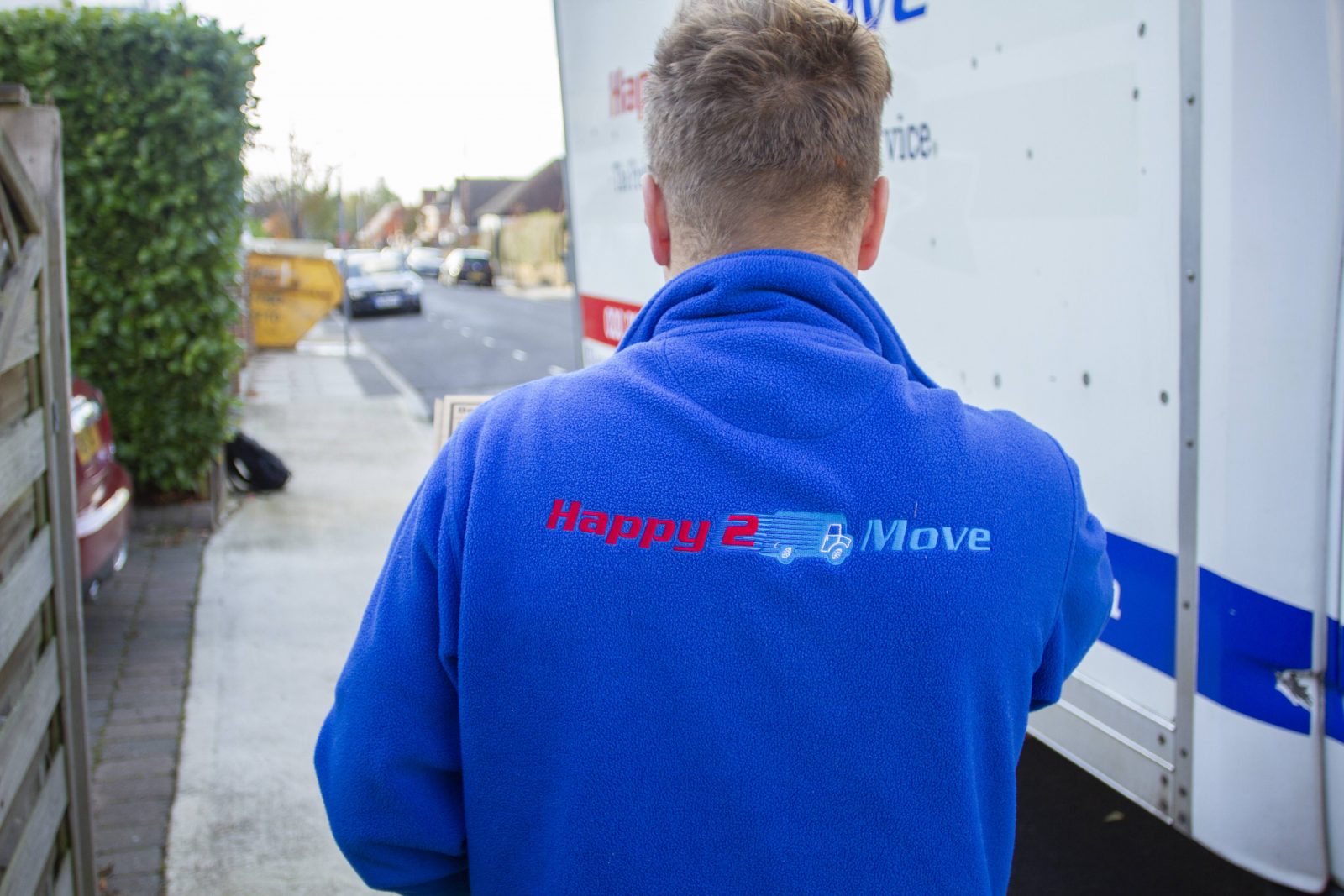
Storage costs can quickly spiral out of control during a house move, especially when you’re making decisions under pressure. We’ve seen clients pay double what they needed to, simply because they didn’t know what to look for or made hasty decisions during stressful times.
At Happy2Move, we believe transparency is key – both in our award-winning moving services and in helping you understand the storage market. Here’s your complete guide to getting fair value for storage without compromising on quality or security.
The Hidden Costs That Catch People Out

Administration Fees That Add Up
Many storage companies advertise attractive monthly rates but hit you with extras:
Set-up fees: Can range from £25 to £100 just for opening your account
Access fees: Some facilities charge every time you visit your unit
Late payment charges: Often disproportionately high compared to the monthly rate
Insurance administration: Separate fees for arranging insurance, even when optional
Always ask for the total first-month cost, including all fees, to compare fairly between providers.
Size Confusion: Paying for Space You Don’t Need
The “next size up” trap: Staff often recommend larger units “just to be safe,” but this can cost significantly more. A 50 sq ft unit might cost £80/month whilst a 75 sq ft unit costs £120/month – that’s 50% more space for 50% more money.
Poor space planning: Without proper planning, you might think you need more space than you actually do. Professional packing can often fit belongings into a smaller unit than you’d manage alone.
Location Premium Pricing
City centre facilities: Often charge premium rates for convenience, but you might not need frequent access to justify the extra cost.
New facilities: Sometimes charge higher rates banking on their modern appearance, when older facilities offer identical security and climate control for less.

Smart Shopping: How to Find Fair Pricing
Research Multiple Options
Don’t settle for the first quote. Storage prices vary dramatically, even within the same area. Get quotes from at least three different providers.
Compare like-for-like: Ensure you’re comparing units with similar features:
- Climate control capabilities
- Security measures
- Access hours
- Insurance options
Look beyond the headline rate: Factor in all fees to understand true monthly costs.
Timing Your Storage Search
Avoid last-minute booking: Emergency storage bookings often result in paying premium rates because you have no negotiating power.
Seasonal considerations: Storage demand peaks during summer moving season. Booking storage in quieter months can sometimes secure better rates.
Longer-term discounts: Many facilities offer discounts for commitments of 6+ months, but ensure you actually need storage that long.
Understanding What You’re Actually Paying For
Essential Features Worth Paying For
Proper security: CCTV, access controls, and on-site security are worth paying for. Your belongings need protection.
Climate control: Essential for wooden furniture, electronics, and anything sensitive to temperature fluctuations. In the UK’s variable climate, this isn’t a luxury.
Insurance options: Comprehensive insurance should be available, though check your home insurance first.
Reasonable access hours: You should be able to access your belongings during normal hours without paying extra fees.
Features That Might Not Be Worth Extra Cost
24/7 access: Unless you genuinely need middle-of-the-night access, standard hours (typically 7am-7pm) are sufficient for most people.
Ground floor units: These command premium prices but offer minimal practical advantage over first-floor units if lifts are available.
Brand new facilities: Older, well-maintained facilities often provide identical service for less money.
Right-Sizing Your Storage Needs
Accurate Space Assessment
Professional assessment: At Happy2Move, we can assess your storage needs accurately. Our award-winning packing expertise means we know exactly how much space different items require.
Common space requirements:
- 1-bedroom flat contents: 50-75 sq ft
- 2-bedroom house contents: 100-150 sq ft
- 3-bedroom house contents: 150-200 sq ft
- 4+ bedroom house contents: 200+ sq ft
Remember: Professional packing is much more space-efficient than DIY efforts.
Maximising Your Chosen Space
Vertical storage: Use the full height of your unit with sturdy shelving.
Disassemble furniture: Tables without legs, bed frames taken apart, and removed sofa legs can save considerable space.
Use furniture storage: Store smaller items inside wardrobes, drawers, and other furniture pieces.
Strategic packing: Heavy items at bottom, lighter items stacked carefully on top.
Negotiating Better Rates
What You Can Negotiate
Multi-month discounts: Even if not advertised, many facilities offer discounts for longer commitments.
Waived set-up fees: Particularly if you’re storing a significant amount or using additional services.
Flexible payment terms: Monthly vs. quarterly payments might offer savings.
Package deals: If you’re using moving services too, combined packages often provide better value.
When You Have Negotiating Power
Off-peak periods: Autumn and winter typically see lower demand.
Large storage requirements: Bigger units give you more negotiating power.
Multiple services: Using both moving and storage services from the same company.
Flexible timing: If you can be flexible about start dates, you might secure better rates.
Alternative Storage Solutions
Traditional Self-Storage Alternatives
Container storage: Often cheaper than traditional units, though with less frequent access.
Shared storage services: Some companies offer shared warehouse space at lower rates.
Mobile storage: Units delivered to your door can eliminate transport costs.
DIY vs. Professional Services
DIY storage:
- Lower upfront costs
- You handle all transport and packing
- Risk of damage from poor packing
- Time-intensive
Professional storage services:
- Higher upfront cost but often better value overall
- Professional packing reduces damage risk
- Comprehensive service including transport
- Time-saving
Consider the total cost including your time, transport, and potential damage when comparing options.
Red Flags: Storage Companies to Avoid
Pricing Red Flags
Unusually low advertised rates: If it seems too good to be true, check what’s included. Rock-bottom rates often come with excessive fees elsewhere.
Pressure tactics: Legitimate companies don’t need to pressure you into immediate decisions.
Unclear pricing: Any reputable company should provide clear, written quotes including all fees.
No written contracts: Professional storage requires proper documentation.
Service Red Flags
Poor facility maintenance: If the facility looks neglected, your belongings won’t be properly protected.
Limited insurance options: Reputable facilities offer comprehensive insurance choices.
Restricted access: Reasonable access to your belongings shouldn’t cost extra.
Poor customer reviews: Check online reviews, particularly regarding billing practices and customer service.
Insurance: Don’t Pay Twice
Check Your Existing Coverage
Home insurance: Many policies cover belongings in storage, though often with limitations.
Moving insurance: If you’re using professional movers, check whether storage is included in their coverage.
Credit card protection: Some cards offer coverage for stored items, though this is typically limited.
When to Buy Additional Insurance
High-value items: Antiques, artwork, or expensive electronics might need specialised coverage.
Extended storage periods: Longer storage might require more comprehensive coverage.
Climate-sensitive items: Items that could be damaged by temperature fluctuations might need specific protection.
Timing Your Storage Strategically
Short-Term Storage (Under 3 Months)
Focus on flexibility: You might pay slightly more per month for the ability to end storage quickly.
Avoid long-term contracts: Don’t commit to lengthy terms if you only need short-term storage.
Consider alternatives: For very short periods, keeping items with friends or family might be more cost-effective.
Long-Term Storage (Over 6 Months)
Negotiate bulk discounts: Longer commitments usually qualify for better rates.
Review periodically: Storage needs change over time. Re-evaluate every 6 months to ensure you’re not paying for more space than needed.
Consider decluttering: Long-term storage costs can exceed the value of stored items.
Working with Professional Moving Companies
The Happy2Move Advantage
As 2024 Packer of the Year winners, we understand how to maximise storage efficiency whilst minimising costs. Our comprehensive approach means:
Accurate space assessment: We know exactly how much space your belongings will need.
Efficient packing: Professional packing techniques can reduce storage space requirements by 20-30%.
Integrated services: Our moving and storage services work together, often providing better overall value than separate providers.
Transparent pricing: No hidden fees or surprise charges.
Questions to Ask Moving Companies About Storage
- What’s the total first-month cost including all fees?
- How do you determine storage space requirements?
- What insurance options are available?
- Can you provide references from recent storage clients?
- What happens if I need to access items during storage?
Making the Smart Choice
Calculate Total Cost, Not Just Monthly Rates
Consider the complete picture:
- Set-up and administration fees
- Monthly storage costs
- Insurance costs
- Transport to and from storage
- Your time for DIY options
- Potential damage costs from inadequate protection
The False Economy of Cheap Storage
Saving £20 per month on storage costs isn’t worthwhile if:
- Poor security leads to theft or damage
- Inadequate climate control damages belongings
- Hidden fees make the total cost higher anyway
- Poor access policies cost you time and frustration
Getting Started: Your Storage Checklist
Before Booking Any Storage
- [ ] Get quotes from at least three providers
- [ ] Understand all fees, not just monthly rates
- [ ] Check your existing insurance coverage
- [ ] Assess your actual storage space needs
- [ ] Consider professional packing to reduce space requirements
- [ ] Read customer reviews and check facility credentials
Questions to Ask Every Storage Provider
- What’s the total cost for the first month including all fees?
- What security measures are in place?
- What are the access hours and any associated costs?
- What insurance options are available and at what cost?
- What notice period is required to end storage?
- Are there any restrictions on what can be stored?
The Bottom Line
Storage doesn’t have to break the bank, but it does require informed decision-making. The cheapest option often isn’t the best value, whilst the most expensive isn’t necessarily the best quality.
Smart storage shopping means understanding what you’re paying for, comparing total costs rather than headline rates, and choosing providers who offer genuine value rather than just low prices.
Remember, your belongings have both financial and sentimental value. Protecting them properly whilst avoiding overpayment requires balancing cost with quality – but with the right approach, you can achieve both.
At Happy2Move, we believe in helping our clients make informed decisions about every aspect of their move, including market-leading London storage. Whether you use our services or not, we hope this guide helps you avoid the common pitfalls that catch out so many people during house moves.
Storage should support your move, not strain your budget. With proper planning and smart shopping, you can secure the protection your belongings need without paying more than necessary.









